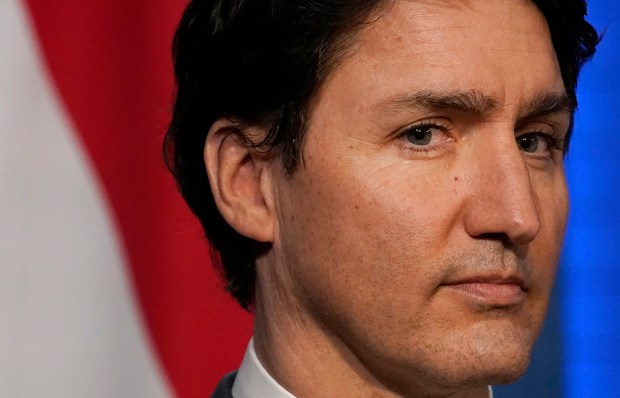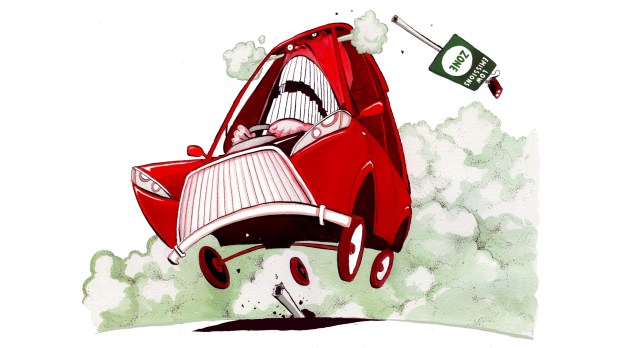Someone sent me a job advert recently for a Junior Research Fellowship at Queen’s College, Oxford. It states: ‘The Queen’s College embraces diversity and equal opportunity. Applications are particularly welcome from women and black and minority ethnic candidates, who are under-represented in academic posts in Oxford. The more inclusive we are, the better our work will be.’
Nothing particularly objectionable about that, although when the college says it aspires to be more ‘inclusive’ it doesn’t mean it wants conservatives to apply, even though they are among the most under–represented groups at Oxford. It makes that clear when it goes on to say Queen’s shares the university’s commitment to promoting equality and has set up a ‘working group’ to see how it can best respond to the demands of the Black Lives Matter movement. Since those demands include defunding the police and overthrowing capitalism — as originally set out on BLM’s UK crowdfunder — I can’t see any conservative applicant getting far.
When I read things like this it makes me think that the work my colleagues and I have been doing to try to make universities and other institutions more tolerant of those who don’t share the prevailing orthodoxy has largely been in vain. That is confirmed in a recent report for the Legatum Institute, which found that about one in three UK academics who identify as right-wing are self-censoring compared with just one in eight who identify as centrists. This is partly because conservatives on campus are becoming an increasingly small minority. In the 1960s roughly 35 per cent of UK academics voted Conservative and 47 per cent Labour; by the mid-2010s, support for left-leaning parties among university staff had climbed to 82 per cent.’
But since it’s Christmas I thought I’d jot down some reasons to be cheerful. To be clear, I think the free speech crisis will get worse before it gets better — a lot worse. But I do think the tide will eventually turn.
To begin with, the government has brought forward a Bill to strengthen free speech protections on campus —the Higher Education (Freedom of Speech) Bill — that will become law next year. The problem the Bill seeks to address isn’t a lack of legal protection for academic freedom (there are quite a few good laws already on the statute books). The problem is they’re more honoured in the breach than the observance. The beauty of this Bill is it will create various enforcement mechanisms, including appointing a Director for Freedom of Speech and Academic Freedom to the Office for Students who will have the power to fine higher education providers. Once this Bill becomes law, an applicant for the JRF position at Queen’s who is rejected because of his conservative views might be able to lodge a complaint with this free speech champion.
Then there’s the fact the Maoist enforcers of intersectional dogma are beginning to overreach. We saw this at the University of Sussex earlier this year, when student trans rights activists hounded Kathleen Stock, a gender critical philosophy professor, off campus. Among their tactics were dressing up in masks, letting off smoke bombs and encouraging fellow activists to take matters into their own hands if the university didn’t fire Professor Stock, by which they presumably meant physically assaulting the 49-year-old philosopher. In light of these threats, she felt she had no choice but to resign, prompting a huge wave of public sympathy for her.
These sorts of aggressive tactics aren’t going to win over many supporters for the causes the activists are promoting. The same hubris partly explains the backlash against Stonewall, the militant LGBT lobby group, which has had a disastrous year in which several high-profile institutions, such as the BBC, have withdrawn from its Diversity Champions programme. Stonewall’s hostility towards gender critical feminists who don’t believe transwomen should be admitted to women’s refuges or compete against biological women in women’s sports, and its reluctance to engage in debate about these complicated questions, has surely contributed to its reversal of fortune.
Another reason the social justice warriors are losing the argument is because of their disregard for due process. One of the hallmarks of cancel culture is that anyone in the dock is assumed to be guilty and given little opportunity to defend themselves before punishment is meted out. We saw this in the case of Michael Vaughan, the former England cricket captain and commentator, who has been accused of referring to players of Pakistani heritage more than ten years ago as ‘you lot’. Even though Vaughan denies the charge, he was dropped from the BBC’s Test Match Special team and it looks like BT Sport will follow suit. As the ex-cricketer Monty Panesar wrote in the Telegraph: ‘To blacklist one of the best England captains we have produced on the basis of historic and still unproven allegations feels wrong, and a distortion of natural justice.’
We can also take some comfort from the fact that these leftwards cultural shifts tend to follow a cyclical pattern. True, the survey evidence says that young people are more likely to prize emotional safety over free speech than older people. But while that’s true of millennials and even Gen Z, it isn’t necessarily true of the generation after that. Anecdotal evidence suggests that among teenagers a backlash is gathering momentum, with boys in particular regarding the ideological fervour of the generation above them as slightly comical.
This points to the major weakness of the authoritarian zealots, which is their vulnerability to ridicule. For years, I’ve been laboriously trying to engage them in debate, pointing out that many of their claims don’t square with the evidence and their so-called principles are selectively applied. If you’re going to scrub all dead white European males from reading lists, why make an exception for Marx, Foucault and Derrida?
But these blows glance off them, as if truth and consistency are the hobgoblins of small-minded Tories like me. Take the mickey out of them, by contrast, and they start to experience a collective nervous breakdown.
So it’s not all doom and gloom for those concerned about the lights going out across the Anglosphere. We should brace ourselves for countless horrors in the coming year, but there are sunlit uplands in our future.
Got something to add? Join the discussion and comment below.
Get 10 issues for just $10
Subscribe to The Spectator Australia today for the next 10 magazine issues, plus full online access, for just $10.
You might disagree with half of it, but you’ll enjoy reading all of it. Try your first month for free, then just $2 a week for the remainder of your first year.















Comments
Don't miss out
Join the conversation with other Spectator Australia readers. Subscribe to leave a comment.
SUBSCRIBEAlready a subscriber? Log in